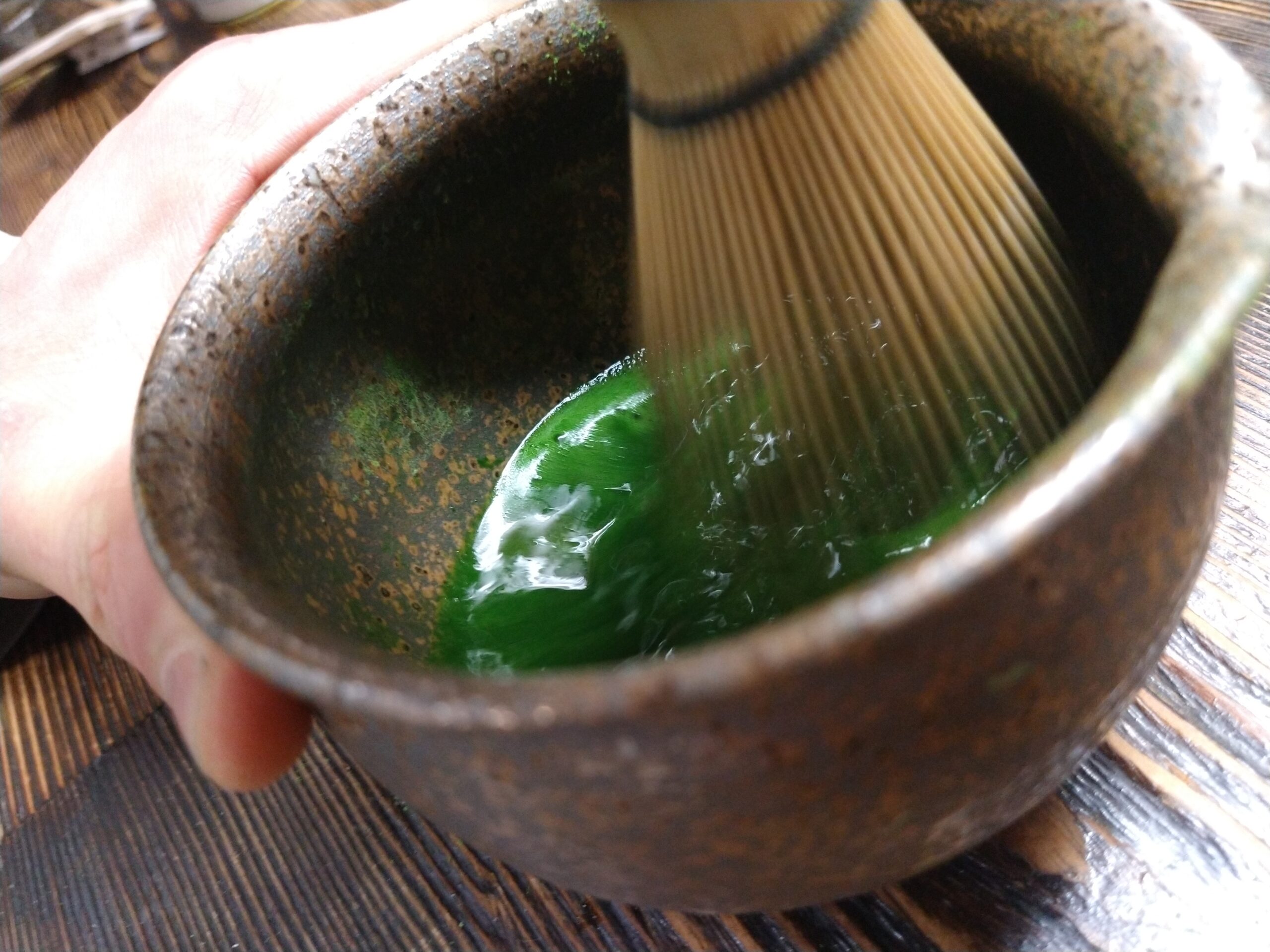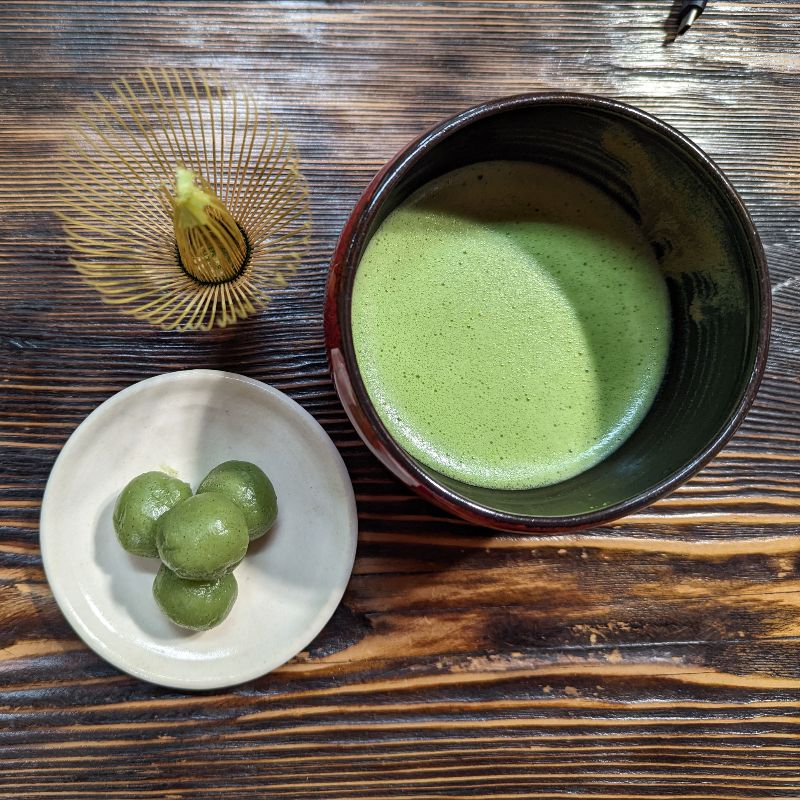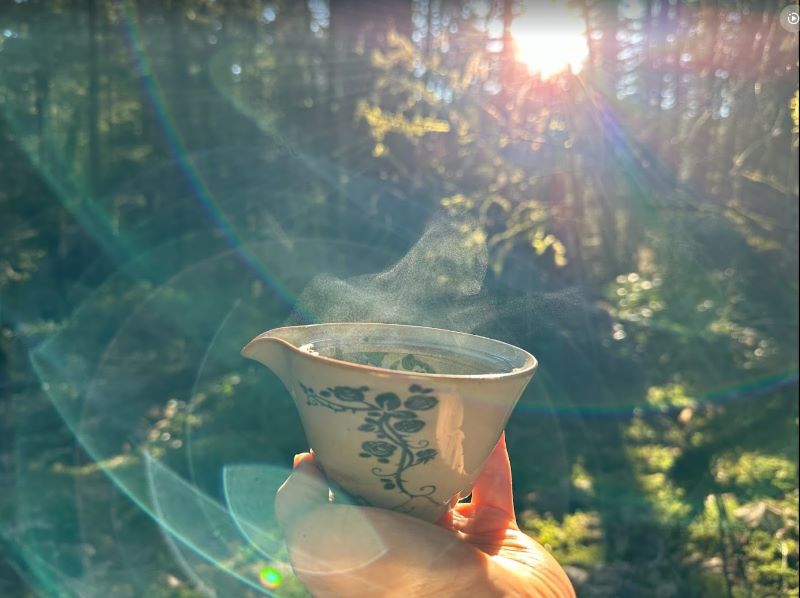
So how is it spelled? Maccha or matcha?
The question begs to be asked, doesn’t it? Is it spelled maccha or matcha?
The answer to this question took some research and some digging. It started with Miyuki, co-owner of JagaSilk, born and raised in Japan, intuitively writing “maccha” when transliterating the word. However, local companies in Canada were spelling it “matcha”. What was going on here?
It would seem that it is all because of the “sokuon” found in the middle of the word, commonly referred to as a “small tsu”. The ideographs making up maccha are matsu (ground) and cha (tea). When written together, the Japanese language splices them with a slight pause, called a “sokuon”.
In a nutshell, after way too much research, we have found that the “tc” spelling is a result of an Anglosization of Japanese for Anglophone consumption. The “cc” reflects a method officially recognized by the Japanese government, used by almost every Japanese person, and just makes more sense if you are comfortable with the language: most Japanese are not even aware that “matcha” is a possible spelling until moving to North America.
Is “matcha” a spelling error or what?
The “sokuon” pause is best represented in English as matcha, the “t” forcing English speakers’ tongues to pause in the middle of the word and shorten the vowel sound. This romanization method is called “Hepburn”, and was invented by a priest for English speakers to learn Japanese. The best way to describe this used to be found on the online peer encyclopaedia, Wikipedia, and used to refer to Hepburn as “an intuitive method to show Anglophones the pronunciation of a word in Japanese.” It further used to state that, “The Hepburn system has been criticized because its distortion of the Japanese phonology can make it harder to teach Japanese to non-natives.”
The strongest argument for the application of Hepburn to “ground tea” is that it is easier for English speakers and used by North American companies so why rock the boat?
So why “maccha”?
“Maccha” is from the system used by the Japanese, an updated “kunrei-shiki” that ironically uses some Hepburn, albeit not “tc”, (since “tc” does not enjoy popular usage amongst Japanese people). Kunrei-shiki is officially recognized by the government and taught to Japanese people in school.
It is more grammatically correct and uniform in its employment of the “small tsu”. Words such as “depart”, spelled “hacchaku” in Japanese, have a similar phonetic sound to “maccha”, and are officially written with the “cc”. The “sokuon” is otherwise always represented by a doubling of the consonant following the vowel before the “sokuon”, such as “happa” and “kitte”.
Arguably of better phonetic accuracy would be the government’s preferred spelling: mattya. However, nobody spells it that way, even in Japan. However, just like Beijing is often still spelled Beijing, Sri Lanka referred to as Ceylon, and Taiwan referred to as Formosa, there will always be a historical application for obsolete (arguably colonial) nomenclature and spellings, even when they are no longer correct.
JagaSilk Interview With the Japanese Gov’t
On July 18, 2006, the Japanese gov’t’s Language Division of the Cultural Affairs Agency made the official statement to us that, “M-A-T-C-H-A is not based on any officially state recognized romanisation system.” They elaborated that M-A-C-C-H-A would be a spelling that they would prefer, if given the choice between M-A-T-C-H-A and M-A-C-C-H-A.
Japanese words are often mispronounced. “Sake” is actually pronounced with the second sillable rhyming with okay, not key. The spelling is not changed to make it easier to pronounce. Romanization of Japanese is not to make things easier for English speakers.
Spelling maccha with a “double c” can lead to confusion with cafe mocha (especially in the cafe setting) or even maca root (in the health food setting). It leads to mispronunciation. But it is a Japanese word, and the Japanese should have jurisdiction over it.
We choose maccha.
Share this article
Search the blog
JagaSilk Links
Article Categories
Subscribe to our Newsletter
Love maccha? Sign up and get 10% off your first order. You'll also receive new articles and video content!



